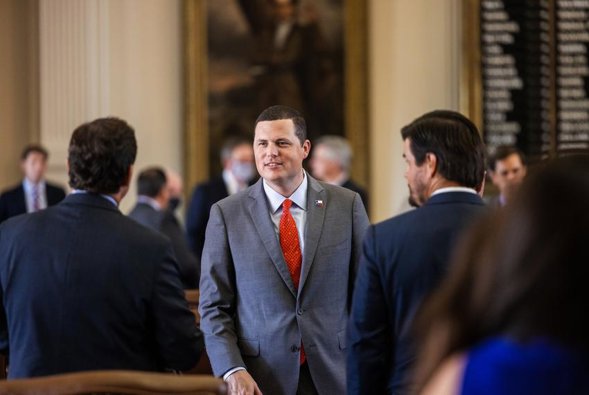
Texas Bill Bans Social Media for Minors
Texas bill seeks to ban minors from social media, citing addiction risks; could become nation’s strictest such law.
Texas Moves Toward Strict Social Media Limits
Texas is poised to enact the toughest restrictions in the United States on minors' access to social media, as lawmakers advance a bill aimed at curbing what they describe as an addictive and harmful digital environment for children. House Bill 186, sponsored by Republican state Rep. Jared Patterson, passed the Texas House last month with bipartisan support and is currently under consideration in the Senate.
In an interview Monday, Patterson said the bill emerged after discussions with legislative committees and concerned parents. “Learning more about it, we really came to the realization that this is the most harmful product that our kids have access to in terms of its addictive nature,” he said.
House Bill 186 would prohibit anyone under 18 from creating accounts on social media platforms unless adjusted by the Senate. It mandates parental consent to download applications, requires warning labels about social media dangers, and applies to any website that enables content sharing or creation. News and sports websites, however, would remain accessible to minors.
National Context and Legislative Outlook
Ten states currently have some form of age restriction on social media use by minors, according to the Age Verification Providers Association. Florida is the only state that bans social media access for minors outright, setting the minimum age at 14. Texas’s proposal goes further by targeting all users under 18, pending final Senate revisions.
Patterson acknowledged that the final bill may be amended in the Senate. “When [the bill] left the House, people under the age of 18 would be prohibited from social media,” he said. “There was broad bipartisan support when the bill left the Texas House.” He added, “The Senate has every right to adjust it to whatever it needs to get out of that body.”
Regardless of the final age cutoff, Patterson emphasized that the legislation’s goal is to protect children from sophisticated algorithms and data-harvesting practices. “These parents don’t stand a chance against these algorithms,” he said. “These apps aren’t for friends sharing information with friends; they are built to harvest data and get people hooked on their products.”
Patterson argued that social media companies have failed to take responsibility for their platforms’ impact on minors. “They refuse to answer for the harm they’ve caused, and they don't even care to answer questions in a public forum about what they’ve done to our kids,” he said.
If signed into law by Governor Greg Abbott, the bill would represent a significant shift in digital policy and spark legal and technological challenges around enforcement, verification, and First Amendment rights. But supporters say the risks of inaction are too great.
“Texas will continue to stand in the gap and protect these kids, even when these social media companies refuse to show up,” Patterson said.






